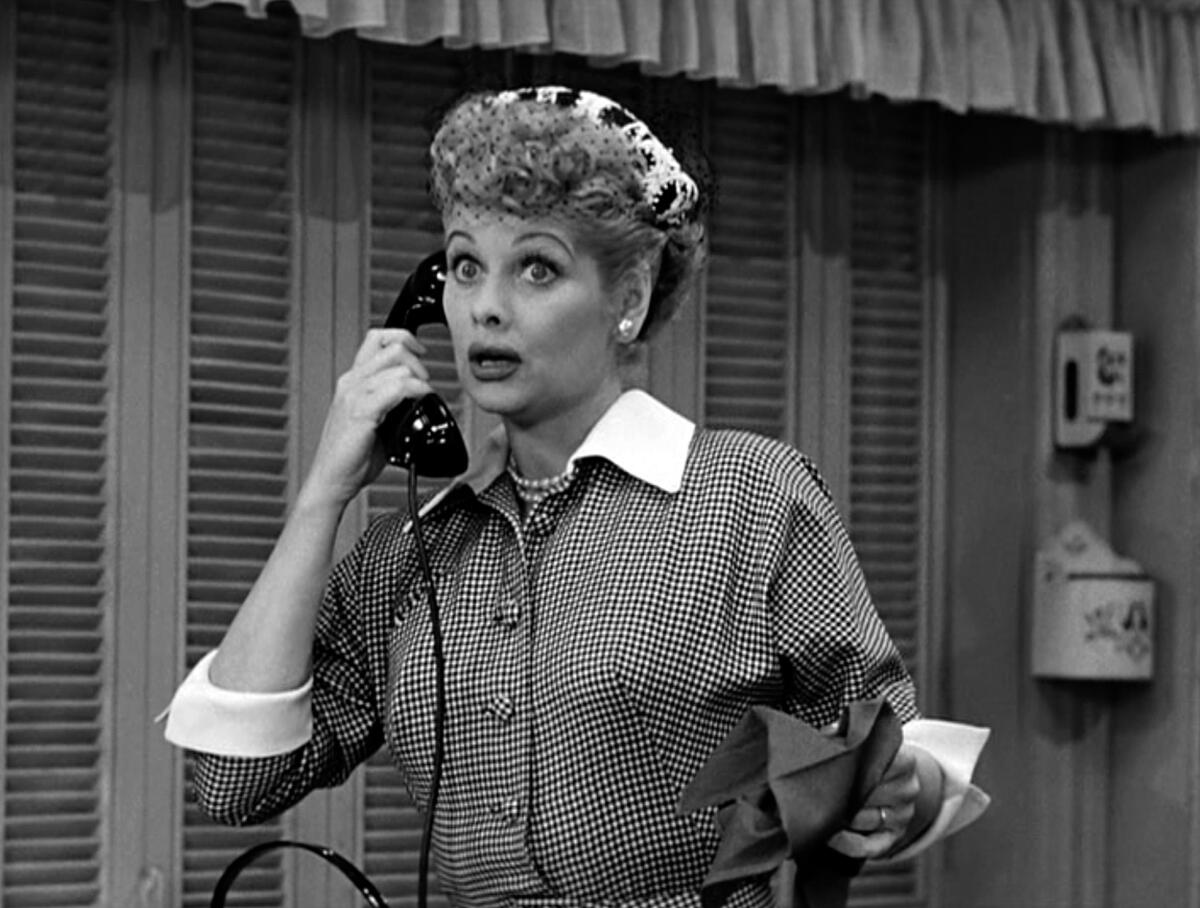A Word, Please: How do you respond when someone asks for you on the phone?

- Share via
The phone rings. You answer. “May I speak with Ms. XYZ?” the caller asks. You’re Ms. XYZ. How do you reply?
A reader in Orange County isn’t sure.
“Many will respond with ‘This is she.’ I usually reply, ‘That is me.’ Are either of these correct? Should I instead just say, ‘I am Ms. XYZ’?”
Before I answer, let’s be clear about something: This is an academic exercise. You can reply “This is she,” “This is her,” “That is me,” “I gave at the office” or “’Sup, homie?” It’s up to you. Formal, proper grammar is optional — especially when you’re dealing with someone who just interrupted your dinner to try to sell you a home warranty.
But that’s what my Orange County reader wanted to know: From a standpoint of proper, formal grammar, which reply is best?
If you apply the grammar lessons you got at school, you’d likely get the wrong answer. We’re taught that subject pronouns like “she” do the action in the verb: She gave at the office. And we’re taught that object pronouns like “her” receive the action of the verb: The donation was given to her. That could lead you to think that “This is me” would be the correct way to answer your caller, since the sentence already has a subject, “this,” leaving the second pronoun in what looks like an object position.
So you’d conclude that the answer is “This is me.” And you’d be left wondering why that’s so out of sync with everyday use. After all, almost no one says, “This is me.” The more formal-sounding “This is she” is more common.
The idea of split infinitives, largely taught during the mid-20th century, can harm the clarity of sentences — and is mistaken about what an infinitive is in the first place.
This seems odd. Usually, people speaking casually go for the less formal option instead of wording that sounds proper. For example, you never hear “Whom are you talking to?” It’s always “Who are you talking to?”
So if everyone uses the more formal-sounding “This is she” in place of the seemingly more logical “This is me,” there must be a reason, right?
Yes. And we would know their reason if, in school, we were taught about either copular verbs or the predicate nominative.
Copular verbs, also called linking verbs, are different from most other verbs because they create a different relationship between the first part of the sentence and the second part. Non-copular verbs usually express some kind of action, sometimes with an object of that action. Bob made coffee. Ellen watched the movie. Sue teaches math. So with a verb like “make,” “watch” or “teach,” you can get a simple subject-plus-verb-plus-object sentence structure.
Copular verbs express being, seeming or the senses. The main copular verb is “be,” seen often in conjugated forms including “is,” “are” and “am.” And these copular verbs don’t create the same subject-object relationship non-copular verbs do. When you say, “Charles is king,” the second noun isn’t an object of the verb. Instead, it’s a reference to the subject. Charles and the king are one. They’re both the subject.
The same is true in “This is she.” The first and last words both refer to the subject because of the dynamic created by the copular verb “is.” That’s why, if you’re aiming for proper English, “this is she” is correct.
There’s a special term for this that almost no one knows and you can forget immediately if you want to. It’s called the predicate nominative. The word “nominative” means basically a subject. The “predicate” part means that the subject appears in the last part of the sentence, the predicate. When you’re dealing with non-copular verbs, the predicate is where you’d find an object like “her” or “him.” But with the predicate nominative, the noun after the copular verb is the subject itself.
So when someone calls for you, you can answer “This is she” with confidence.
June Casagrande is the author of “The Joy of Syntax: A Simple Guide to All the Grammar You Know You Should Know.” She can be reached at JuneTCN@aol.com.
All the latest on Orange County from Orange County.
Get our free TimesOC newsletter.
You may occasionally receive promotional content from the Daily Pilot.



